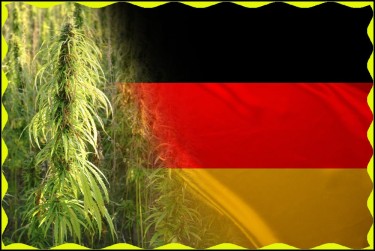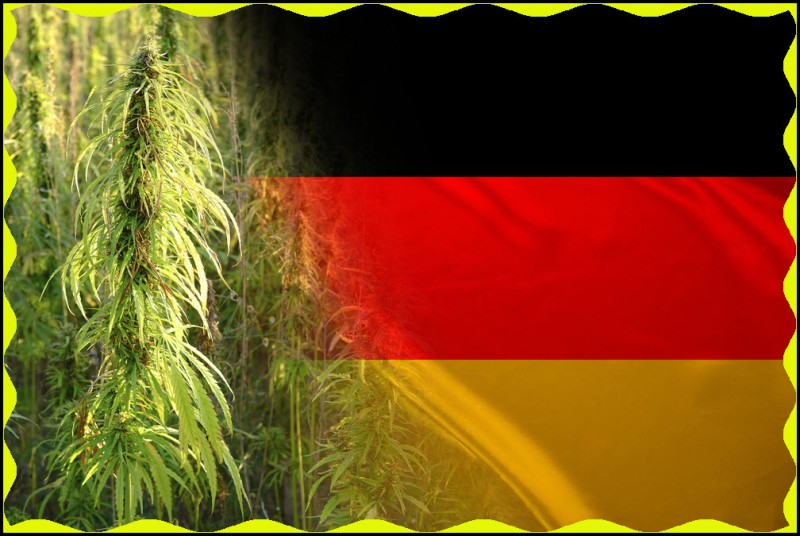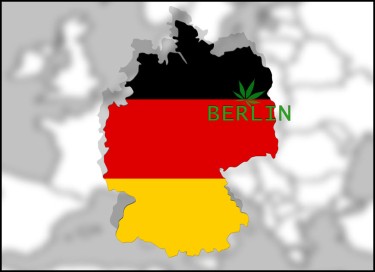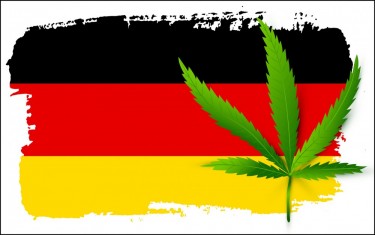
So many grey areas exist in cannabis laws. One of which is the right to sell hemp and CBD products in Germany. As of last week, the case has been pushed to court to determine whether or not it is legal. This lawsuit may accomplish something tangible for international cannabis companies bringing such products into the country.
European countries are currently tackling the legalities of cannabis reform. The entire conversation is still limited to hashing out the sticky and grey areas in the legal territory of the sector. There have been victories and non-conclusive cases over the years, and some of these cases are still ongoing. Regardless of these victories, the overall outlook of cannabis reforms is yet to be settled.
The European Union has yet to approve any cannabis reform and still considers cannabis a prohibited addictive substance. While many countries are trying to wade through the murky waters of cannabis reform, others have chosen to maintain the EU definition of what cannabis and cannabinoids are. Many cannabis reforms have to be challenged or filed through court before the legislature takes action. For example, Germany is 4 years into their medical marijuana program so of today.
The legislature prefers to stay on the fence in these cases until reforms have been successfully challenged and won in court. In this case, advocates cannot use EU law to back up legal cannabis reform challenges as it would be illogical. In a way, these court challenges are fighting for a change in existing EU cannabis laws.
Discussion of Hemp In Germany
Germany has legalization for medical cannabis reforms but has yet to clarify whether this encompasses CBD and hemp products. Germany also approved recretional marijuana reform as country starting in 2022. This well-overdue case has been stalled for so long, but now it is breaking ground and moving on to the court to the joy of many cannabis advocates. This lawsuit seeks to clarify the definition and view of what CBD and hemp products are. It would also set a specific limit on the level of THC allowed in hemp plants and CBD-derived products. In addition to this, the court will finally give in-depth regulations on hemp and CBD sales—whether or not it is legal to sell only the extracts or the flower or both.
This legal challenge will sort through most of the grey areas about hemp and CBD, both of which are regarded as medical cannabis products in some legal countries. For the moment, the lawsuit has stalled. Many European legislative leaders claim that CBD-derived drugs can only be legalized entirely through federal narcotics act reforms. In most European countries, the resistance to cannabis reforms lasts the longest in the legislative chambers.
Despite the now-established medical cannabis market in Germany, incidents like police raids and busts resulting in seizures of CBD items from cannabis or grocery stores are a regular occurrence. European cannabis advocates have said that it should be inexcusable. These embarrassing incidents are mainstream, and the police go as far as retrieving items that contain only trace amounts of CBD. In contrast to this, the French have been able to put a stop to this and also clarify the law to include CBD and hemp.
In Germany, the automatic response to CBD and total cannabis terms is to direct the answer to the federal narcotics act and then explain that it cannot be rushed. For a country with one of the largest medical cannabis markets in the world, Germany ought to have complete reforms already. The new government declared that recreational cannabis reforms would be prioritized in this tenure. However, they are yet to show a concrete plan on how the issue will pan out. Regardless, their commitment to recreational reforms is enough for them to clear off the grey areas surrounding CBD and hemp.
The Legal Perspective
The Treaty on the Functioning of the European Union (TFEU) makes provision for the principle of free movement of imported goods into Germany (Article 34, TFEU). The section shows that German countries are authorized to dispense and sell CBD flowers and concentrates produced by or imported into the country. The current laws make it difficult to ascertain where domestically produced cannabis products entirely belong.
Last April, the court ruling in the Kanavape Case was used as a model to submit claims to the German Federal Office of Consumer Protection and Food Safety (BVL). The German cannabis companies claimed that it was legal to import CBD-derived products legally manufactured in other European countries. The BVL refused these claims and subsequently rejected the applications of these companies.
The companies went back to the drawing board and decided to file lawsuits a few months later at the Court of Braunschweig. Just before the end of the year, the administrative court rejected all cannabis applications. The court defended its action by explaining that the BVL had the right to throw out the applications based on the risks they presented to public safety and the general interest.
The astonishing part of this mumbo jumbo court case is that the product in question is hemp tea. The basis of the matter is that THC extracted from hemp plants can be between 0.02 percent and 0.03 percent. The companies have chosen to advise the federal government on amending the German Narcotics Act. Fortunately, proposed amendments that CBD is not an intoxicating substance were made last March. It's just left to the country to adopt these amendments.
These court cases imply that the legal challenge has a high potential to effect change in Germany's cannabis laws. Kai-Friedrich Newman, the lawyer in charge of the team, says that this legal challenge could be Germany's "Kanavape case."
Bottom Line
The Coalition's declaration of implementing recreational reform has revived an in-depth conversation about cannabis reform and how the Narcotics Act could be reformed. This legal challenge is a significant case that could solidify a new legal cannabis reform. The success of this challenge might serve as a model for other countries to take similar measures. Should the court decide to grant an injunction, imported CBD and hemp products will flow freely into the market, while domestic products will be ignored. Looking at the bright side, this could place more pressure on the coalition to make progressive changes to the law to promote local sales of CBD and hemp.
GERMANY GOES GREEN ON CANNABIS, READ MORE...
GERMANY VOTES TO LEGALIZE RECREATIONAL MARIJUANA, READ THIS!








